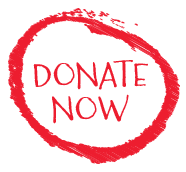We acknowledge that Indigenous peoples have suffered under colonial and postcolonial policies. We believe that to work respectfully with Indigenous nations, our staff needs to be aware of the collective impact that intergenerational trauma continues to have on Indigenous children, youth, and families.
We need to learn and understand our shared history in a way that moves us towards a stronger and healthier future, with relationships rooted in mutual understanding and respect.
We know that by supporting Indigenous young people, we strengthen society overall. We also know that our ability to provide transformative spaces and meaningful opportunities for Indigenous and non-Indigenous young leaders to forge new pathways together is a crucial contribution to Truth and Reconciliation.
We are guided by the United Nations Declaration on the Rights of Indigenous Peoples, which establishes the individual and collective rights of Indigenous peoples and protects them from discriminatory policies and practices.
We are also guided by the Truth and Reconciliation Commission of Canada’s final report, and in response to their Calls to Action, we will:
- Build knowledge and awareness of Truth and Reconciliation at BGC by offering learning/unlearning and capacity-building opportunities for Club leadership, staff, volunteers, and members (children, youth, and families) that will increase understanding of Indigenous peoples, cultures, languages, communities, histories, the impact of colonial actions, intergenerational trauma, and the role that we can play in walking the path of Reconciliation (TRC Calls to Action 92iii and 62i).
- Seek meaningful and sustained relationships with Indigenous communities and organizations, nationally and locally, based on equality, good faith, and mutual respect, to work collaboratively towards equitable, accessible, and culturally relevant and responsive services for Indigenous children, youth, and families (TRC Call to Action 66).
- BGC Canada’s Truth and Reconciliation Commitment Statement has been developed with Club leadership from across the country, in consultation with Elders, Knowledge Keepers, and youth leaders, and has been approved by our national Board of Directors. This statement will continue to move us towards our vision that all children and youth discover and achieve their dreams and grow up to be healthy, successful, and active participants in society.
92iii Provide education for management and staff on the history of Aboriginal peoples, including the history and legacy of residential schools, the United Nations Declaration on the Rights of Indigenous Peoples, Treaties and Aboriginal rights, Indigenous law, and Aboriginal–Crown relations. This will require skills based training in intercultural competency, conflict resolution, human rights, and anti-racism.
62i Make age-appropriate curriculum on residential schools, Treaties, and Aboriginal peoples’ historical and contemporary contributions to Canada a mandatory education requirement for Kindergarten to Grade Twelve students.
66 We call upon the federal government to establish multi-year funding for community-based youth organizations to deliver programs on Reconciliation, and establish a national network to share information and best practices.



